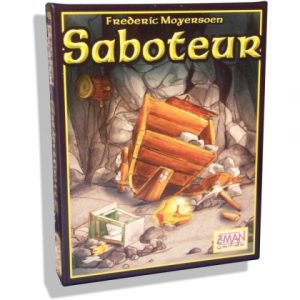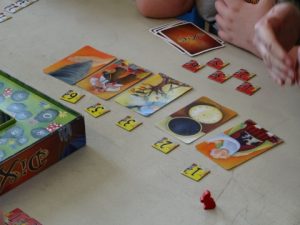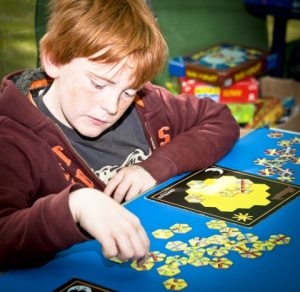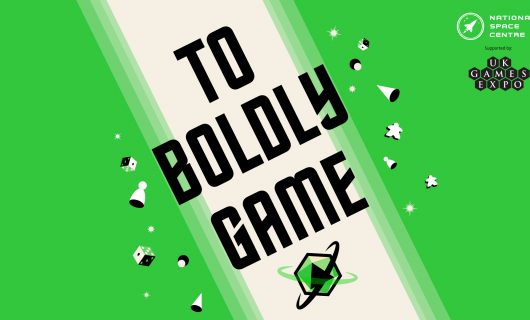
Skills For Life
It is commonly remarked upon that the skills we take for granted are taught by the parents, seem woefully lacking in many children these days, and we would be the first to agree. Beyond basic topic based learning, skills such as patience, turn taking, listening and concentration are often skills we find many, if not most, children struggle with, through both primary and secondary levels. These are areas that schools are well aware they have to deal with but must do so alongside delivering the curriculum. Games are the perfect tool with which to tackle and develop these fundamental skills.
Waiting for others to take their turn, letting them take their time to work out their next move or trying to read whether or not they are bluffing are all moments that should be valued and, through continued game play, they become factors in the games that players learn to appreciate and respect.
“…the content of a game, and the way in which it works are key for matching a game to a skill, but there’s more to it than that…”
Okay – Which Games?!
Obviously different games suit different situations, and there are a lot of factors we will consider when choosing what is appropriate at any given time. Clearly the content of a game, and the way in which it works are key for matching a game to a skill, but there’s more to it than that. Experience of lots of factors such as age, ability, numbers of players, group dynamics, time and even location are just some of the things we consider when planning what to play. And then there is also the ‘on the day’ and ‘what if’ factors that can mean you must be able and ready to adapt what you are doing seconds before and even during play!
All that said, here are a few examples of games that broadly suit certain situations. They are not the only types of games we would use, not by a long way, but will give you a small insight to the different approaches and games that can be useful.

People that struggle with patience are often introduced to games such as Katamino. This puzzle is ideal for those that believe they struggle to focus or exhibit patience. With easy starting solutions to complex mid-term problems it is one of those games that is very moreish and is difficult to stop playing, as the sense of achievement of finishing one level demands you start the next… which, of course, will be even harder!
If we need to improve general listening skills then often cooperative games provide an ideal platform to begin improving these. These games require, for the most, that the players work together to beat the game itself, and that failure to join forces will mean failure as a group, and then no-one wins. Not listening in these games can create frustration in the other players, something which they generally want to avoid, and so without pressure from us a focus and concentration generally descends upon the game. Again, the game must fit the group, but recent games such as Forbidden Desert work well in these situations.

The ability to deal with others is a skill even more vital as we progress through life, but is apparently becoming something that more and more struggle with. I’ve lost count of the number of times I’ve seen kids argue within a class over something trivial which in turn disrupts the whole class. When playing a game you are often forced to consider someone else’s opinion, accept another player’s decision or ally with someone then watch as they stab you in the back. Although these can be frustrating occasionally, if run in the right way they can highlight what is required to cope with these decisions.
Games such as Saboteur can be great for evoking conversation and letting us give opinions on what is happening within the game. The fact that from game to game people that were once your allies become saboteurs means that they can no longer make simple assumptions about their friends intentions. We will often pause a game just to solicit opinions from all of the players, creating a banter and atmosphere.

Should we be surprised that children don’t seem to talk to each other in the same way anymore? Shouting at each other, no matter where they are, seems to be the norm. To play a game you often need to hear what’s going on, listen to the thoughts of others or make alliances. This can’t be done if everyone’s shouting. It’s remarkable how quiet people can become when concentration is required. Gaining the trust and leading to a game that’s still intriguing but a little slower can once again change behaviour and surprise the players as to how much they enjoyed changing how they interact.
Games such as Dixit are both extremely popular and successful in quieting down a group and creating an atmosphere of concentration and creativity. This game has also worked really well with groups with little or no self-confidence. Speaking out is often daunting to these groups but, after a couple of games, you can find them making great strides and smiles appearing on their faces.

We often find ourselves working with children who have been diagnosed with a variety of disorders, as well as children who are very vulnerable and have often been excluded from school due to disruptive or violent behaviour. However, after working with them for short amounts of time we find that they are capable of exhibiting patience and concentration far in excess of what is expected. This is primarily because they quickly choose to play the game. They want to take part. Ultimately it’s about finding activities they are initially comfortable with, that they want to do, that will in turn help them develop and see why these skills are important so that long term we can get them back in to education, work or simply to become a little happier in life.
A game with extremely simple rules but with great scope and potential for increased learning is Take It Easy. We often modify this game to make it easier but after a couple of games find it is not necessary anymore. With each game being different to the player we can play it as a group activity, but with little pressure on the individual as each game is unique. Setting the player the target of beating their previous score results in a group of players waiting eagerly for the next game and all the time concentrating, focusing and using basic maths skills throughout.

Curriculum based skills such as numeracy and literacy appear to be the least cool of all things in the eyes of many children, however if approached correctly the competitive urge, the opportunity to be creatively inspired and the desire to be challenged, which lies within most children, soon comes to the fore. We rarely meet any child that doesn’t enjoy the company of others and a challenge, if it’s done and run in the right way of course.
Think Of The Situation
Understanding how kids think, and being able to relate to them, is a key ingredient for any tuition nowadays. Teachers have a hard enough task teaching, never mind being social workers. Children are expected to go to school and by the first lesson learn. I know I certainly don’t feel like learning when I get up on a morning but that’s what we expect of them. Many children are not sent to school in a mind set of wanting to learn, more along the lines of I don’t want to be here. How can we help change that? Running a games club on a morning get help get those brains warmed up prior to the first lesson. This in turn helps with attitude and attention.
For these sorts of activities the focus should purely be on fun and on games that get the children mixing and laughing. Relaxing and putting a smile on their faces. Learning is easier if you’re happy. Jungle Speed (Insert link & picture) is perfect for this and is guaranteed to get even the most hard faced child involved and laughing. Great concentration required and good reflexes helps!
Splashing games in to a class based environment can not only add a bit of excitement and fun to a class but also a challenge and a chance to apply some of what they are learning. It does not matter what the subject is, there’s usually a game out there that will give you the opportunity to do this.
So What Are We Saying?!
Well – we are not saying that all kids should do at school is play games. That’s not what this is about. What we are saying though, is that playing games as a group can help create friends where there are none, help give confidence to young people in their own abilities, allow them to try to get better at what they do and what they know and put a smile on their faces when sometimes this doesn’t happen enough.
One slight word of caution on playing games with children or anyone else for that matter… Don’t let them win!…
….There’s more to this of course, it’s a balance, nothings ever black and white. The game you play is important and how you play it with them – just don’t think that letting them win will do much good, short term or long term. We’ll discuss why in more detail in a future blog.
In the meantime, I’ll leave you with one of my favourite quotes from none other than Albert Einstein himself
“Imagination is more important than knowledge”
He got this so very right!
…
We realise that the title ‘Why Use Games In Education’ could, should and probably will be the title of a book, rather than a blog this short. There are lots of areas to cover, questions to answer and answers to question! We will get to that. For now you should have a sense of where we are coming from and what we can achieve. As Imagination Gaming we will continue to use on our experience to highlight and share the wide ranging impact of using games in education, something that has been extraordinarily beneficial for countless schools and organisations and got us to where we are today. As always we look forward to your thoughts too….
Related blog posts and/or events:
Why Use Games In Education?



